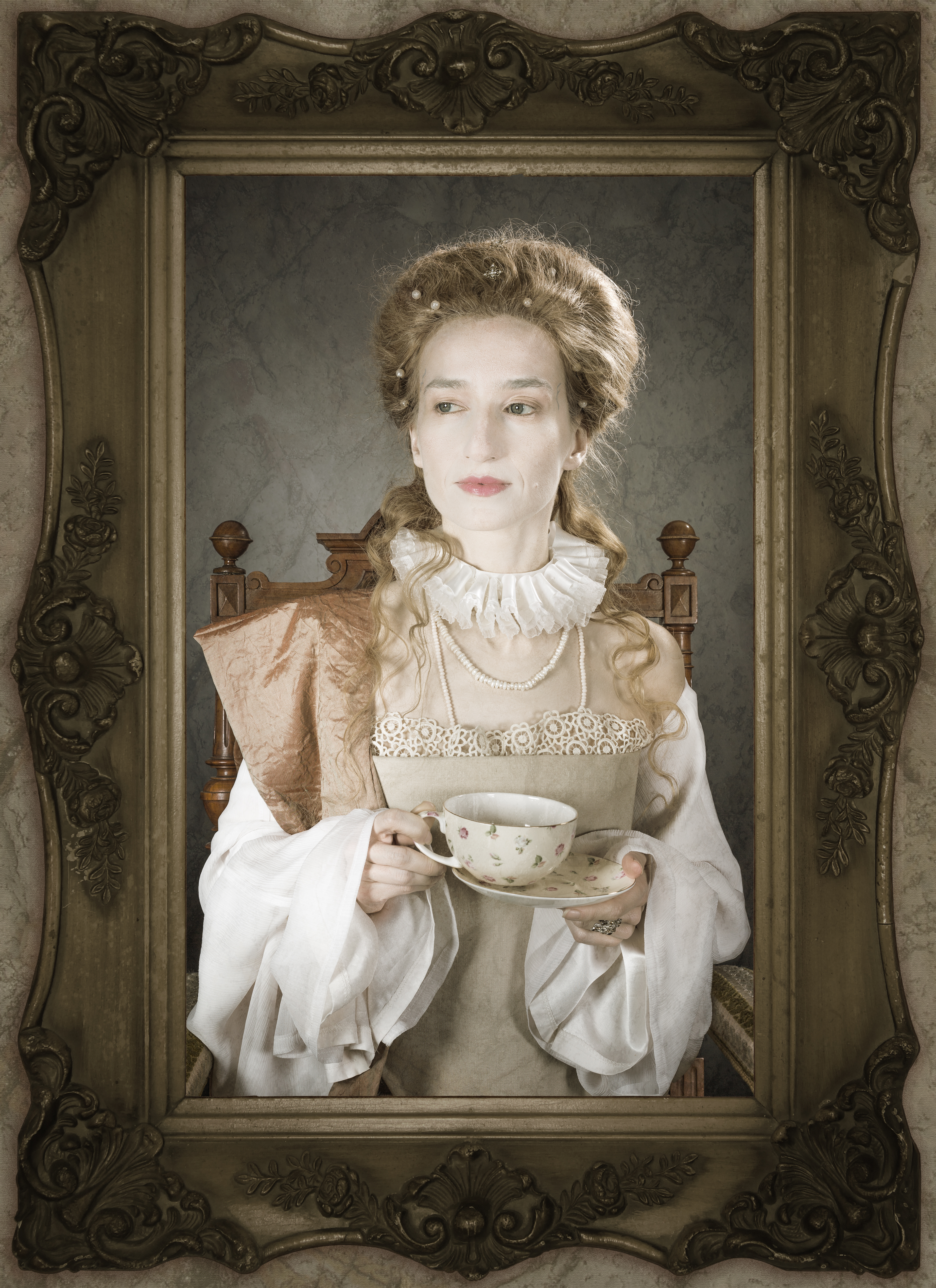ASK & DISCUSS
INDEXDoes film still have a serious diversity problem?
10 years, 2 months ago - Kelie Petterssen
Interesting article on Variety features a study with some very thought provoking infographics: http://bit.ly/1hlh3tr. Here's a few examples of what the study brings to light: 'Nearly three quarters (73.1%) of all the speaking or named characters in the 100 top-grossing movies of 2014 were white' and '30.2% of the 30,835 speaking characters evaluated were female across the 700 top‐grossing films and only 11% of the films had gender‐balanced casts or featured girls/women in roughly half (45‐54.9%) of the speaking roles.' Well.. what do you guys think?
Only members can post or respond to topics. LOGIN
Not a member of SP? JOIN or FIND OUT MORE
10 years, 2 months ago - Andy Greenhouse
Thanks Kelie, good question.
I thought I'd put in my two-pennies worth on this because we're discussing part of the issue (gender equality in film) on Wednesday 12th August at our 'Screen Social: W=M' event in London - ScreenSocial.com.
I don't believe in stats, but I believe those stats. 'Top grossing' means largely Hollywood which means stats based on an outdated industry which is unrepresentative of most other industries and the world in general.
Film, which reaches, and like Tom says, holds influence over a huge audience... is a funny one.
To a large degree I'm waiting to see what the evening throws up (the founders of Underwire Festival are on our panel among others) but it seems to me that the imbalance (though too wide to generalise, as I just have) is linked to countless other factors in society other than just within the insular world of film. Circumstance (ie. freedom to pursue a desired career) undoubtedly plays a huge part which will (slowly) change but until a seismic shift happens there is definitely a conversation that's needed.
On the specific subject of gender imbalance - I agree to an extent (though being a bloke myself) with Alève regarding the 'emancipation' side of things. We struggled to name the event and W=M was the least offensive (and most symmetrical) result. Though, the fact that we're hosting an evening on the subject is productive but maybe counter-productive too... no, actually I refuse to accept it can be a negative thing - it's getting people like me talking and writing post comments about it. Who knew?!
I'm ready to listen to some well-researched points-of-view on Wednesday and will try and figure out some kind of conclusion of my own.
Perhaps we'll look into doing a 'diversity in film' event and continue the debate.
Will let you know what happens... or you can watch the discussion unfold via Periscope @ScreenSocial on the night.
10 years, 2 months ago - Kelie Petterssen
That sounds like a really interesting event Andy, would you post the details into the SP Event Calendar? As I am sure members would be super interested into attending!
I do think '700 grossing' films is generic to Hollywood in this study. However, the problem with this is that these are the films that are entertained by the mass consumer-audience. These representations are actually, as a whole, what the industry is teaching the rest of the world about film - which is not ideal...
And change, however slow, is always a good thing - but that seems to be the way of the world, not just the industry.
10 years, 2 months ago - Alève Mine
Although gender, race, and other issues are generally put in the same pot, we could make a decision on our platform here to separate gender discussions from other issues discussions. As mentioned in another thread, gender issues are of a different nature. Although I don't believe anything can help gender problems, mixing it with other other issues def doesn't help: one way in which it doesn't is explained here: https://youtu.be/nLdE50v8Xc4
10 years, 2 months ago - Paddy Robinson-Griffin
Sidebar, according to BFI figures, around 690 films were released (just in the UK) last year, though the figure suggests 700 top grossing films without time constraint. Actually, I wonder how they adjusted for time - Hollywood was a lot 'whiter' in the past, so these may also affect the final tally!
And at Cannes in any one year there are maybe 10,000 films traded in various forms (although some will be in more than one year). In the marché there are around 40 sales screenings at any moment, 16 hours a day. Most never make it to the big screen in the UK (I don't know the US market nearly so well, so who knows, just assuming it's broadly similar), and with good reason. Maybe the guns and bombs action movies are an easier international sale which drives their eligibility in the 700 highest grossing category - that would also skew the list.
Alève, have to laugh, glad you like those films, I get so bored by them! Obviously I use the crudest of brushes to select explosion movies as 'boy'and Mamma Mia as 'girl' :-$
10 years, 2 months ago - Paddy Robinson-Griffin
I take statistics with caution - could it be that the top 700 grossing films for instance are 'boy' films because teenage boys are the bulk of the mass market, where women might prefer fewer explosions in their lower grossing but more satisfying films? By that, I mean that selecting top grossing films already preselects a population for the study that may not represent the while market, and be denser on the Transformers crowd.
I'm looking forward to seeing what others think!
10 years, 2 months ago - Richard Woodburn
Yes film does have a diversity problem no matter how anyone cares to make excuses for it. Look at British TV. If your a celebrity then you've got a chance of Herding Sheep, you may get the odd presenting gig or a criminal part in EastEnders. It doesn't take that much for it to manifest it self into the film industry. Bet they'll do Othelo next but cast him as a white guy to put bums on seats or the story of Nelson Mandela but with Leanardo Caprio in the leading role.
10 years, 2 months ago - John Lubran
Yes that's certainly true and evident Paddy
It'll be about story lines and the market; socio/political engineering and business share only a very narrow slice in the spectrum of viability. Money follows the demographics that are likely to be profitable. Interesting possibilities for crowd funding though? Apart from more genuinely compelling and brilliant story lines featuring those characters that can also engage a broad general audience, which is perfectly doable if talent is willing, the only other way to ensure greater representation of minorities and underrepresented groups will be through positive and subsidised discrimination. Avoiding stereotyping clichés though is something else.
10 years, 2 months ago - Alève Mine
Great to hear your approach.
Just noting that it is best not to make any assumptions as to why fewer women are applying for this or that job: with the best of intentions, it still causes preconceptions to get anchored, like here the existence of M/F artforms, or the degree practicality of M/F activity.
10 years, 2 months ago - Lee 'Wozy' Warren
Whilst agreeing with all the above - playing devils advocate a little: Aren't films being made that audiences want and pay to see? If audiences were to start saying no to a white Mandela (as a wild example posed by Richard above) then filmmakers would stop using white actors for none-white parts.
While the fuel of bums-on-seats keeps being thrown on the fire of filmmaking, the fire will continue to burn - surely?
Just a thought.
Wozy
10 years, 2 months ago - Tony Oldham
Yes.
Casting is down to the decision makers; directors, producers, and execs, whilst in TV, commissioners could also play a better role in pushing diversity. For instance the role of a lawyer (protagonist or not) could be just as well played by a good actor/ person of any race, gender, or creed; unless essential to plot or character backstory.
One of the first historical features to come out of America was 'Birth of a Nation', and it is a terrible terrible piece of racist propaganda about the KKK. It was not until the late 90's that U.S. movies began to give a better voice to African Americans. We cannot be foolish enough to think that popular media and cinema does not continue to play a crucial part in shaping the way we think about other races and people.
Our views continue to reflect what we see on screens.
10 years, 2 months ago - John Lubran
Just to add to this exploration of moral and demographic realities. The Western 'dharma' associated with media entertainment is nevertheless, despite its shortcomings, far more open and inclusive than those of other places. It has been interesting for me, observing at close quarters, the ironic example of the burgeoning African media entertainment industry. Despite the equally priced availability of western products from Hollywood and Europe, locally produced films are more favoured by African audiences, by a very big margin, despite being in my estimation, among the worst acted, worst produced, most racist, intolerant and socially reprehensible of offerings. Pretty much goes for Bollywood too, despite being somewhat better produced technically.
So lets not beat ourselves up too much, the west is light years ahead, in terms of 'tribal/social/political inclusion', tolerance and enlightenment than any other community anywhere else in the entire blinking world; and we're not done yet either as we're steadily getting ever better at evolving that general enlightenment.
10 years, 2 months ago - Alève Mine
In the above, as well as in another thread earlier, the assumption recurrs that films displaying what is assumed to fulfill males is what makes money, therefore shall mostly those get financed.
Thereby it is important to note that the assumptions about what males would want to watch and what females wouldn't want to watch are but assumtions. Paddy I love explosions (don't get me wrong: in movies only).
And the elephant in the room: as you can only make money with films that you make, and you only/mostly make films of the described type, then only/mostly films of the described type will make money.
State of affairs is, in contrast to the general conviction about it: not only the expected revenue makes for funding/production/distribution/promotion decisions. Many other factors intervene. It's complicated.
That said, I'm not trying to change anything to the way things are done overall: I came to believe that every time an "emancipation" move is implemented, structures around it shift in a way to leaves women in some ways in a worse place than before. It's like a live morphing tetris monster. I threw the towel some time ago.
So why am I still working in this industry? Well, elsewhere is no better alternative in my case, so I'd at least want to live some freedom fantasy in the films themselves. Grant me that... Oh damn, I just realized that takes funding, which can only be sourced in the real world.
10 years, 2 months ago - Vasco de Sousa
Define "white"?
I'll be very politically incorrect here. This is about American movies, not Bollywood or anywhere else. Jewish people tend to be classified as "white" in America, and working class people are called "middle class" in America. In Britain, not even Irish people are completely "white."
As far as Asians in cinema goes, there are Brits who star in Bollywood films, Americans who play in Hong Kong. Many of these films are strait-to-video in the USA, so won't appear in the top 700.
The majority of the population in the United States is considered "white." The percentage of "Black" and "Asian" characters roughly corresponds with how those ethnic groups are represented on the census.
Hispanics are indeed under represented. The treatment of Hispanics in Hollywood is indeed abysmal. They seem to be portrayed as villains, or if good guys lecherous pot smokers. The exceptions are few, "Spy Kids" probably has all the Hispanic good guys in one movie (and its one of the few movies where Hispanics display family values.) Native Americans are portrayed disrespectfully, and Arabs, well, even before September 11 they were almost always terrorists, as were Eastern Europeans.
I sometimes wonder if these "balance" surveys are intended as an excuse to further marginalize unrecorded minorities such as Arabs, white Southerners and Eastern Europeans (and, until recently, Hispanics.) When the English guy comes along "we love your accent", but when the Portuguese guy applies "we have too many white people already."
As far as straight and gay, when, you can't really tell that. Most people in Hollywood are bisexual anyway, if you believe the tabloids. A lot of gay-themed movies are made (which can be seen at gay film festivals), but flop at the box-office.
That said, many religious groups are also under-represented in the movies. Would religious-themed film festivals help address that balance, or merely serve to marginalize those communities?
As for top 700 grossing films, that's just about everything that comes out in the cinema. So, they have used a pretty good sample.
The male-female divide is something entirely different. Hollywood (or the American film industry) has historically been sexist, more sexist than the theatre or than other Western film industries.
That said, more men apply to enter film school. In my experience, more men apply to technical roles on a film (sound operator, camera.) For Dara Says, only one female applied to do sound with us. I have no idea whether the applicants were straight or gay, but most of them had lighter skin than I do.
This is perhaps partly because artistic men are socially discouraged from pursuing careers in less "masculine" art forms and pushed to more "practical" degrees. Also, talented women are being pushed to "correct" gender imbalances in other industries, such as IT.
If anyone from a minority group (or disability, or whatever) wishes to apply to work for us at Ptara, rest assured you'll be treated fairly and equally, as we will anyone from a "majority" group. We don't have any openings at the moment, but perhaps the best time to apply is even before the job description has been written.
Best of luck and happy shooting.
Vasco
http://ptara.com









